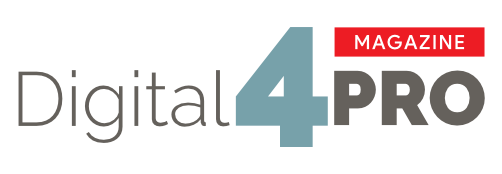- Mail:
- info@digital4pro.com
Post digital work

Il lavoro post digitale
19 Maggio 2020
5G: Come crescono le reti cellulari
26 Maggio 2020Then, a black swan came to the West to act as an accelerator: the pandemic from COVID-19.
On March 9, 2020, news agencies argued that Apple’s chief executive officer Tim Cook offered employees in most of his offices around the world the opportunity to work from home and calling the coronavirus epidemic an “unprecedented event. “. Cook urged staff to “feel free to work remotely if the job allows it”.
On March 26, 2020, the European Foundation for the Improvement of Living and Working Conditions stated that COVID-19 could have a permanent impact in Europe on remote digital working conditions by permanently changing the relationship between employer and worker.
In fact, on 20 March 2020 the Manager Observatory with a research on the evolution of smart working, also in light of the measures taken to deal with the ongoing health emergency, based on the interest of Google users (source Google Trends) on the topic between 9 December 2019 and 9 March 2020 recorded an exponential growth in searches, compared to a substantially flat trend in the previous 70 days. The data tells us how, with the emergency, smart working has instantly become from niche phenomenon to mass phenomenon. Managers assuming that after the pandemic we could find ourselves in a completely new scenario both by virtue of the experience started in the weeks of containment of Covid-19 by tens of thousands of businesses and millions of workers and, above all, from the point of view of cultures of organizations, invite us to primarly focus on people and then think about technology. Certainly a greater diffusion of smart working can determine widespread advantages for the business system, for the environment and for workers (i.e reduction of fixed costs related to the size and cost of offices, reduction of traffic, with benefits on the productivity of chains logistics, reduction of air pollution). In particular, according to current estimates, 1 million more workers in smart working mode at 50% of the time would allow the reduction of CO2 emissions into the atmosphere in the order of several hundred thousand tons per year.
In fact, on April 15, 2020, based on the data calculated by #ColleghiAmoilLavoro, the Jojob platform that allows you to quantify the effects of remote work, since the beginning of the health emergency, which has led companies and employees to review the methods of work, with smart working, the Italians registered on the platform up to that time had saved more than 100 thousand euros, accumulated over 10 thousand hours of free time and not released into the atmosphere over 60 tons of CO2. Thanks to its #ColleghiAmoilLavoro algorithms, it quantifies the time savings linked to remote work, as well as the economic and environmental savings (in terms of CO2 not emitted) accumulated by workers who do not have to travel every day by car or public transport.
April 18, 2020, the Fistel of Tuscany communicates to the media that, with an initiative probably unprecedented in terms of size in Italy, it will allow the approximately 2,500 Tuscan workers of Tim to actively participate with a special app, at different times, in the trade union information meetings on an agreement signed with their company on April 6, 2020.
In short, we are facing an acceleration that transforms the sense of urgency already contained in studies such as Structural Transformation in the OECD – DIGITALIZATION, DEINDUSTRIALIZATION AND THE FUTURE OF WORK by Thor Berger and Carl Benedikt Frey into concrete actions, where the need of skill upgrading was underlined in the face of the significant alteration of the configuration of the trades following the impact of digital technologies. In practice, the pandemic has pushed the ubiquity of digital even further.
To define reality it can be useful to take George Westerman’s 1 metaphor and say that organizations no longer need to try to become faster caterpillars because they are already turning into butterflies, at least some of them; that is, the changes that are taking place in the work are transformational and not simply incremental.
So, is the health crisis dramatically helping us in the transition to post-digital?
Too soon to say.
In fact, smart working is proving to be capable of being a vehicle for transforming the organization as described, for example, in The Impact of the Internet on Employment by Lorenzo Pupillo Eli Noam and Leonard Waverman. However, smart working is part of the process of flexibilization of the labor market which will increasingly affect the balance between professional and private life, on the health and prospects of those who work. Therefore, with advantages in terms of greater autonomy, better balance between professional and private life, more productivity, reduced travel times, better access to employment for vulnerable groups and also with disadvantages due to the risk of longer working hours, overlapping work and domestic life, an increase in work intensity and lack of visibility 2 .
What to do in the face of this paradox of autonomy?
The whole society is wondering, my hope is that the answers we will give start from the awareness that this further acceleration of the diffusion of digital technologies will profoundly change relations with ourselves, with others and with our social ecosystem. Inevitably, our well-being will be interdependent with the quality of our interaction with the digital and the information system it generates. This condition implies the need to give ethical answers to the paradox, in the sense of responses that know how to include our digital well-being in their horizon (“The expression ‘digital well-being’ refers to the impact of digital technologies on what it means to live a life that is good for a human being in an information society 3 .”).
Because we have before us in equal measure probability that digital technologies will reduce social inequalities by facilitating our well-being and a better understanding of ourselves (we think of the potential of big data in these areas) and that social media condition our relationships and our psychological states or that the automation of work determines an increase in the professional vulnerability of individuals or worse social butchery phenomena.
In short, even for post-digital work we will do well to keep this star in the sky above us: “Work is just another name for a human activity that accompanies life itself, which in turn is not produced for to be sold. 4 ” What do you think, dear readers, do we want to continue following this story?
1 George Westerman he is a researcher at the MIT Sloan Initiative on the Digital Economy. His research activities focus on the leadership and innovation of digital technology.
2 Telework and ICT-based mobile work: Flexible working in the digital age di Oscar Vargas Llave Irene Mandl Tina Weber e Mathijn Wilkens.
3 Christopher Burr, Mariarosaria Taddeo, Luciano Floridi in The Ethics of Digital Well‑Being: A Thematic Review.
4 Karl Polanyi, The great transformation, cit. in Francesco Seghezzi, The great transformations of work.




